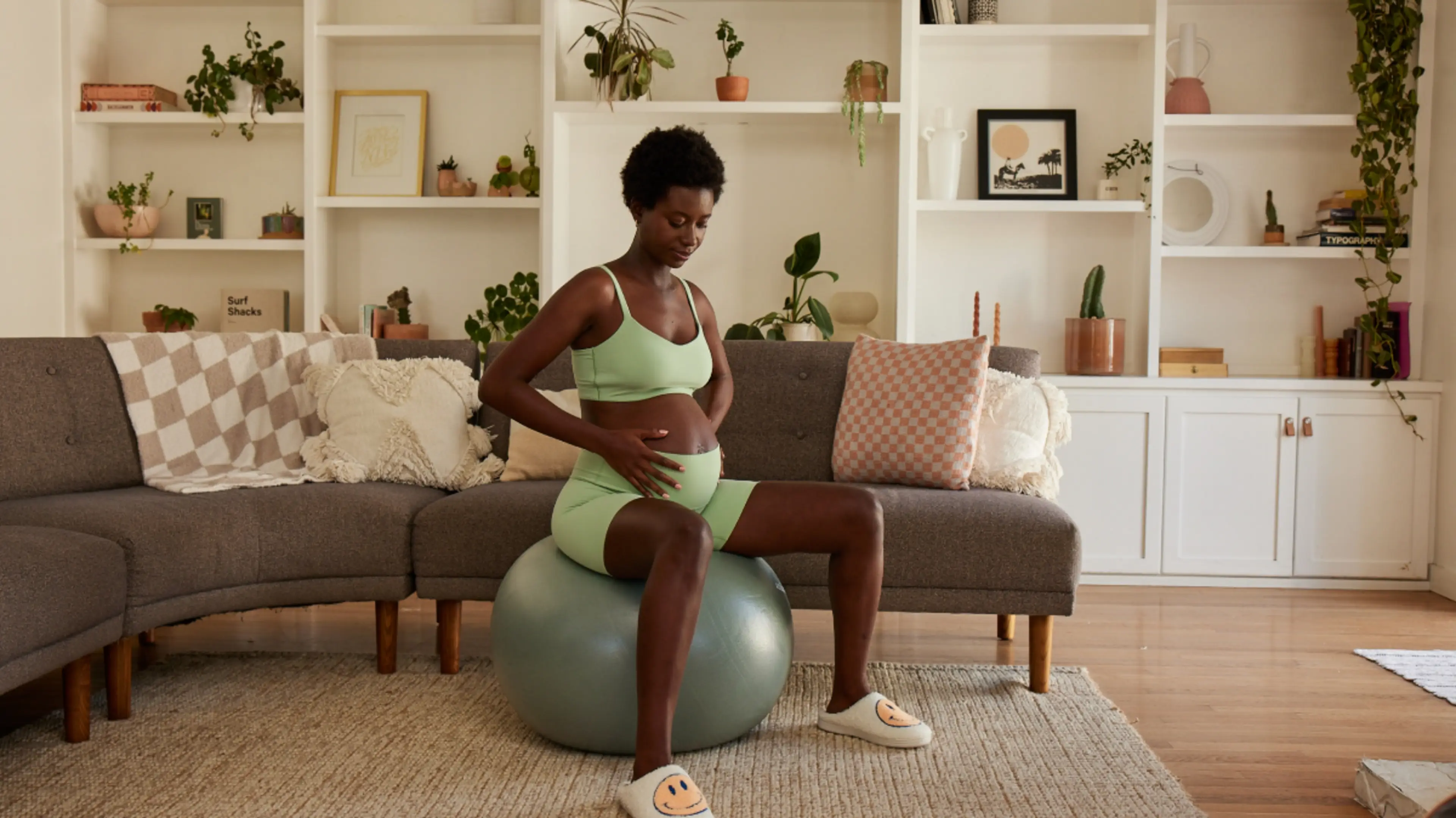Feeling contractions? Hang tight, they might be Braxton Hicks, which are different from true labor contractions. Braxton Hicks contractions1 are your body’s way of preparing for labor, and they’re perfectly normal in your second and third trimester. Here’s what you need to know about Braxton Hicks contractions so you don’t go running to the emergency room before it’s time to deliver.
What Are Braxton Hicks Contractions?
Braxton Hicks contractions are the tightening of a pregnant person’s uterus any time before they’re actually in labor. Think of them as training for the main event. Sometimes known as false labor, Braxton Hicks contractions are known to send many a people to the hospital thinking that baby’s on their way when they actually aren’t.
“A lot of doctors will refer to Braxton Hicks as ‘false labor’ but I prefer to call it ‘pre labor’ because it can be so invalidating to tell someone the pain they’re experiencing is pointless,” explains Al Bradlea, Dona-certified doula and lactation consultant. “There is a point to them! They’re preparing the body for labor.”
These practice contractions get their memorable name from John Braxton Hicks, the doctor who first documented them in 1872.
What Causes Braxton Hicks Contractions?
Braxton Hicks don’t happen just to fool you. They’re your body’s way of preparing for the actual contractions of labor. They’re considered a normal part of pregnancy, and while it’s not clear exactly what causes Braxton Hicks contractions, the American Pregnancy Society (APA)2 outlines some things that can bring them on:
Dehydration: Drink up because when muscles are dehydrated, they can cramp up—and that includes the uterus. Dehydration can also cause preterm labor, so it’s a good idea to drink a lot of water during your pregnancy.
Overexertion: Gentle exercise like swimming, walking and prenatal yoga can be great to do during pregnancy, but try not to overdo the workouts. Take a break and rest if you start feeling Braxton Hicks contractions while you’re exercising.
Sex: You might feel your belly tighten up after having an orgasm while you’re pregnant.
Full bladder: In some cases, a full bladder can trigger Braxton Hicks contractions.
A UTI: As if the pain and discomfort of a urinary tract infection aren’t enough, it can bring on Braxton Hicks contractions as well. They should go away after treatment. See the doctor right away if you have burning when you pee or an urgent to go.
According to the National Library Of Medicine3 , some experts believe Braxton Hicks contractions late in pregnancy help the cervix (baby’s entryway into the outside world) start to soften and dilate to get ready for baby’s debut.
What Do Braxton Hicks Contractions Feel Like?
Braxton Hicks contractions can feel different for different people and at different times. “It’s one of those maddening things that can feel so different from person to person,” says Bradlea. Honestly, you might not feel Braxton Hicks at all. Or you might notice your belly getting really tight (and rock hard!) without much sensation at all. You might also feel a little discomfort or actual pain with Braxton Hicks—there really is a big range of sensations.
Pregnant people who have had a baby before tend to notice Braxton Hicks contractions more than first-time parents do.
When Do Braxton Hicks Contractions Start?
Braxton Hicks contractions can start pretty early in pregnancy—but you probably won’t feel them until at least 20 weeks pregnant. They’ll likely become more noticeable in the third trimester and will continue until the end of pregnancy. “It can be infuriating because Braxton Hicks don’t necessarily mean labor is right around the corner,” says Bradlea. “They can last for weeks before giving birth.”
Wondering how long Braxton Hicks contractions last? Usually just 30 to 60 seconds, but they’ve also been known to last as long as two minutes, as reported by the National Library of Medicine3 .
Braxton Hicks vs. Real Contractions
The biggest question when it comes to Braxton Hicks contractions is: How do you know you’re not in labor? The answer is that Braxton Hicks go away. Braxton Hicks contractions are random and intermittent. They’ll ease up after a few minutes or if you move positions, go to the bathroom or drink a glass of water.
Real labor contractions will:
Become regular and start to occur more often and become more intense with time (a contraction timer app can be useful for timing them).
Continue no matter what you do.
Be more uncomfortable or painful than Braxton Hicks contractions.
Aside from labor contractions, other signs of labor include a bloody show—a blood-tinged discharge made up of blood vessels that come from the cervix when it starts to dilate—losing the mucus plug and your water breaking.
“The main difference between Braxton Hicks and true labor contractions is that Braxton Hicks is not actually causing the cervix to dilate,” says Bradlea.
Usually, it’s clear that you’re having Braxton Hicks contractions because they’ll go away, but you should call your doctor anytime you’re unsure. “When in doubt, call your care team!” says Bradlea.
How to Relieve Braxton Hicks Contractions
Braxton Hicks contractions range from a little annoyance to super uncomfortable to even a bit painful. There are some things you can do that can help relieve the discomfort and may even stop them.
Change positions: Simply getting up or sitting down can make Braxton Hicks go away.
Drink water: Since dehydration can bring on Braxton Hicks contractions, you may just need to drink a few glasses of water to get some relief.
Rest: If you’ve been overexerting yourself, take a breather. That may be all you need to stop the contractions.
Breathing and relaxation techniques: Did you learn any natural pain management techniques in your childbirth class? Try them while you’re having a Braxton Hicks contraction. This might not stop the contractions, but it can help with the pain—and give you practice in using those methods before the big event.
If you try all this, and your contractions don’t stop or you suspect you might be experiencing the real labor deal, call your healthcare provider right away.










